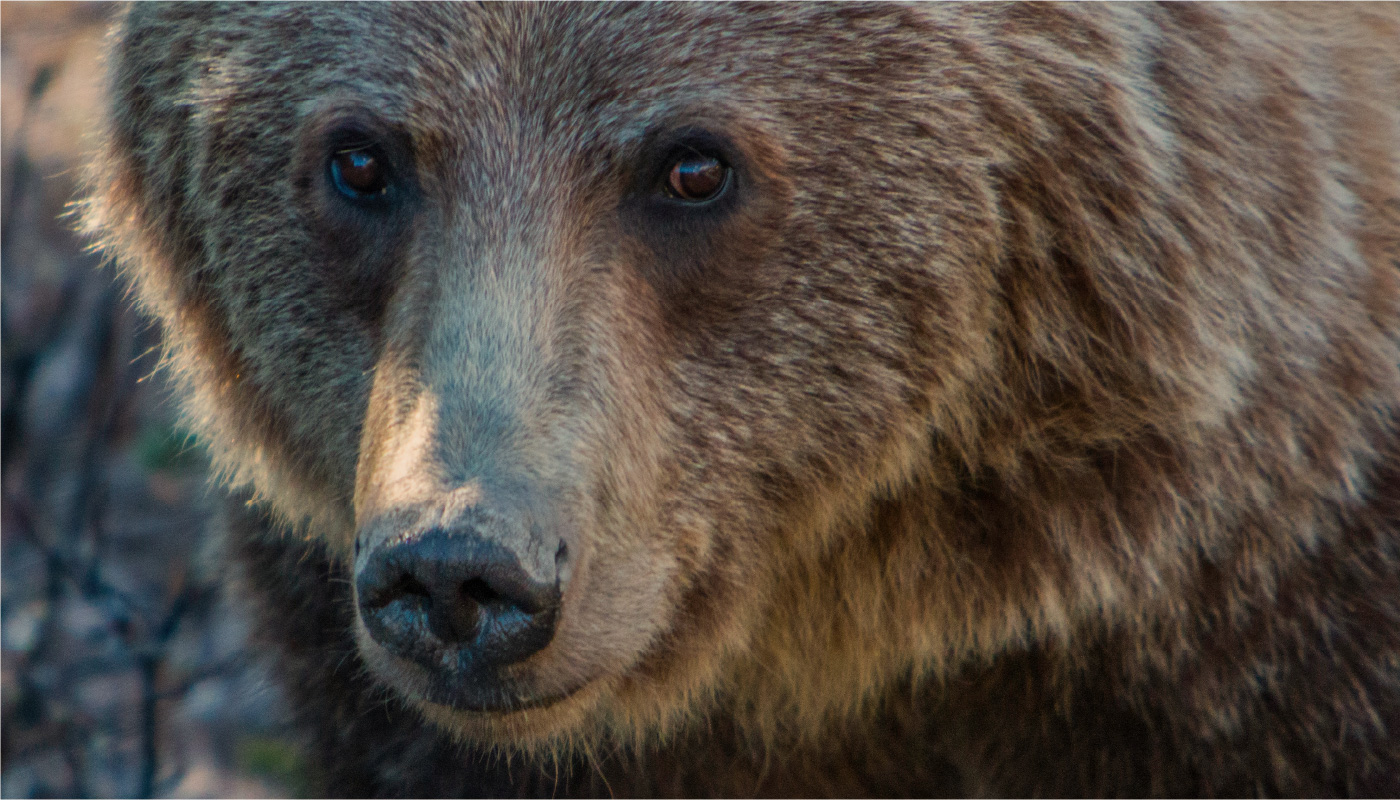2019 Sarah Baker Memorial grant recipient’s research helps with ‘big picture’ wildlife management for healthy ecosystems in B.C.
Mateen Hessami’s interest in and care for the natural world, and now his chosen career path, have been shaped by the people around him and the landscapes in which he has been immersed.
After moving to the United States at a younger age, Mateen started hunting, fishing and camping in north Idaho when he was 12 years old. It was Mateen’s uncle who taught him the ropes. More specifically, he recalls the values his uncle instilled in him — to hunt ethically, and to take part in activities in ways that don’t degrade nature but preserve it far into the future.
“The more time I spent out in these landscapes, the more I was captivated with the outdoors and conservation. I started reflecting on what peoples’ impacts meant for the wild places I would spend time in, and how I could help make a difference through my career.”
Mateen Hessami, 2019 Sarah Baker Memorial Fund recipient
Y2Y has awarded Mateen with the 2019 Sarah Baker Memorial grant for his master’s research at UBC-Okanagan. He is based in Dr. Adam Ford’s Wildlife Restoration Ecology Lab and is supported by an advisory team that includes Dr. Rob Serrouya from the Revelstoke-based Caribou Monitoring Unit and Dr. Jesse Popp at Mt. Allison University, New Brunswick.
The annual Sarah Baker Memorial grant provides funds for graduate students and postdoctoral fellows to conduct conservation-related research that helps to inform Y2Y’s conservation work.
Mateen’s multi-faceted project focuses on moose harvest and conservation in British Columbia’s Lake Revelstoke Valley. How can we best manage moose, but still conserve the Columbia North herd of endangered southern mountain caribou? That question also contains another critical element: the implications for people.

The research takes place in one of Y2Y’s priority areas for conservation action: The Cabinet-Purcell Mountain Corridor (CPMC).
“The CPMC is so important to connect wildlife from B.C. and Alberta with Idaho and Montana. Past and present human activities like logging, roads, mining and dams have fragmented habitat and changed how carnivores, herbivores and people interact,” says Y2Y’s conservation scientist, Dr. Aerin Jacob.
Historically, moose were not abundant in this area of southern B.C. But as landscapes changed largely due to human activity and development, there were more young forests and open spaces — ideal habitat for moose — and so their numbers grew. By the end of the 1900s, moose were thriving, but that brought problems for southern mountain caribou: there were more predators like wolves and cougars, which also hunt caribou and use human-made roads and trails to access high alpine areas.
To help conserve the region’s caribou, in the early 2000s the B.C. government started increasing the number of moose hunting tags. Why? Reducing the number of prey animals also indirectly reduces the number of predators, like wolves. As Mateen explains, this change resulted in “less restrictive” harvesting of moose.
Now, Mateen will map moose habitat and analyze population dynamics, landscape change and trends in hunter harvest in the Lake Revelstoke Valley area over the past two decades. His research will support local First Nations and other governments to better manage the landscape for moose, caribou, and people. This research is applicable to other parts of B.C. and the broader Yellowstone to Yukon region.
“Mateen’s research has meaning beyond moose and caribou: it’s also related to the rights, access, and management of sustainable hunting,” says Dr. Jacob.
“Fundamentally, the Yellowstone to Yukon vision is about people and nature thriving together. We need ‘big picture’ management so that future generations can also enjoy and benefit from healthy ecosystems.”
Dr. Aerin Jacob, Y2Y conservation scientist
When he was an undergraduate student at the University of Montana, Mateen worked with Dr. Mark Hebblewhite, Y2Y vice-chair and wildlife biology professor. He was a technician on Dr. Hebblewhite’s long-term elk-wolf research project at Alberta’s Ya Ha Tinda ranch and completed an undergraduate thesis in his lab. It was at Ya Ha Tinda where Mateen connected with Karsten Heuer, Y2Y co-founder and past president, and manager of Parks Canada’s bison re-introduction program. Mateen spent part of summer of 2017 assisting Karsten and his team with vegetation surveys and behavioral observations at the ‘soft-release’ bison paddock in the heart of Banff National Park.

“I have learned a lot from Mark and Karsten — specifically their leadership skills and vision for how to best conserve the Yellowstone to Yukon region,” he says.
Mateen is keen to collaborate and mentor outside of his career in wildlife science. For instance, he works with organizations such as Patagonia and Backcountry Hunters and Anglers to fund a student-led hunter mentorship program at the University of Montana.
Protecting ecosystems, science and collaboration-based approaches, people and wildlife are central to Mateen’s project and Y2Y’s mission and vision. One of the ways funds from the Sarah Baker grant will support his work is to pay for travel to meet with community members and wildlife experts as key parts of his research.
“It’s so much more than a grant,” says Mateen. “Just knowing that Y2Y is on board and supporting my project is great. The network I’m building through this will be lucrative to this project and development of myself as a scientist.”
We look forward to sharing updates from Mateen with you as well as outcomes of his research.
The Sarah Baker Memorial Fund supports student projects that advance Y2Y’s conservation strategy and result in tangible benefits within the region. Sarah Jocelyn Baker’s appreciation for the natural world and ability to find solutions resonate with the aspirations and vision of Y2Y. We are honored to carry her spirit forward through the Sarah Baker Memorial Fund. Thanks to a gift from her extended family, Y2Y is able to offer grants to post-secondary students and postdoctoral fellows pursuing environmentally related studies in any post-secondary institution.


